US angers China by sailing warships through Taiwan Strait
The US Navy has dispatched two warships through the Taiwan Strait in the third such operation in the past four months amid tensions with China, which regards Taiwan as a breakaway republic.
The Japan-based American guided missile destroyer USS McCampbell as well as the USNS Walter S. Diehl conducted what US Pacific Fleet spokesman Lt. Cmdr. Tim Gorman described on Thursday as “a routine Taiwan Strait Transit" that was "in accordance with international law," as Washington increases the frequency of transits through the strategic waterway in a move provocative to Beijing.
“The ships’ transit through the Taiwan Strait demonstrates the US commitment to a free and open Indo-Pacific,” Gorman added in a statement, insisting that “the US Navy will continue to fly, sail and operate anywhere international law allows.”
The US Navy also sent two warships through the sensitive Strait last October and November as well as in July. Previously such transits only took place approximately once a year.
Beijing urges US to stick to ‘one China’ policy
China's Foreign Ministry spokeswoman Hua Chunying once again called on Washington during a Friday press briefing to abide by its "one China" principle, adding that Chinese forces were closely monitoring the passage of US warships through the Strait.

During a meeting earlier this month, US Chief of Naval Operations Admiral John Richardson and his Chinese counterparts raised the issue of Taiwan.
"If someone tries to split Taiwan from China, the Chinese military will do whatever it takes to safeguard national reunification, national sovereignty and territorial integrity," a member of China's Central Military Commission, Gen. Li Zuocheng, told Richardson at the meeting as quoted in Chinese media reports.
US vows continued transits through Taiwan Strait
Following Richardson’s latest China visit -- his second as chief of naval operations -- he underlined that the US Navy would continue to dispatch warships wherever international law allows.
"We see the Taiwan Straits as another (set of) international waters, and so that's why we do the transits through the straits, is again just exercising the right to pass through those waters in accordance with international law," Richardson further insisted last Friday while speaking in the Japanese capital of Tokyo.
“We don’t see any kind of limitation on whatever type of ship could pass through those waters,” he emphasized, also noting that he had told his Chinese counterparts that US policy toward Taiwan had not changed and that it remains "opposed to any kind of unilateral action from either side of the strait that would change that status quo."
The remarks by the top American naval commander came after US Defense Intelligence Agency released a report earlier in January pointing out that China has undertaken a series of ambitious military modernization efforts and acquired new technology that were driven primarily by what it described as "Beijing's longstanding interest to eventually compel Taiwan's reunification with the mainland and deter any attempt by Taiwan to declare independence."
The report further stressed "Beijing's anticipation that foreign forces would intervene in a Taiwan scenario led the (Chinese Army) to develop a range of systems to deter and deny foreign regional force projection."
Xi vows likely use of force to reclaim Taiwan
This is while China’s President Xi Jinping called on Taiwan earlier this month to reject independence and embrace "peaceful reunification" with the mainland in a conciliatory, yet firm, speech that challenged the island's political sovereignty.
The Chinese leader further vowed that "we make no promise to renounce the use of force. We reserve the option for all the necessary means."
In a strong reaction to Xi's remarks, Taiwanese President Tsai Ing-wen insisted that the island will "never accept" a "one country, two systems" arrangement with China.
Beijing has stepped up pressure on Taiwan since Tsai took office in 2016. It has regularly deployed military aircraft and ships for drills near the island in the past few years.
US President Donald Trump recently signed into law the Asia Reassurance Initiative Act reaffirming the US commitment to Taiwan, including weapons sales.
Although Washington officially holds no formal ties with Taiwan, it is bound by law to help the island defend itself and continues to remain its primary source of weapon acquisitions.
China said recently that the country will take necessary military actions, “at any cost,” to thwart potential attempts to separate the self-ruled island of Taiwan.
Beijing claims full sovereignty over the island; and almost all world countries, including the US since 1979, recognize that sovereignty under a policy known as “One China.”
VIDEO | Sydney protests demand action as Israel faces ICC warrant for war crimes
Iran to host ‘important’ ECO foreign ministers' meeting in Mashhad
Wounded in Israeli strike, health of Kamal Adwan Hospital's director worsens
VIDEO | Press TV's News Headlines
Iran reports 11% drop in domestic red meat supply
Arab League affirms support for Iraq amid Israel's threats of military action
VIDEO | Fierce fight in Southern Lebanon
Over 1000 medics killed in Gaza as Israel systematically targets hospitals


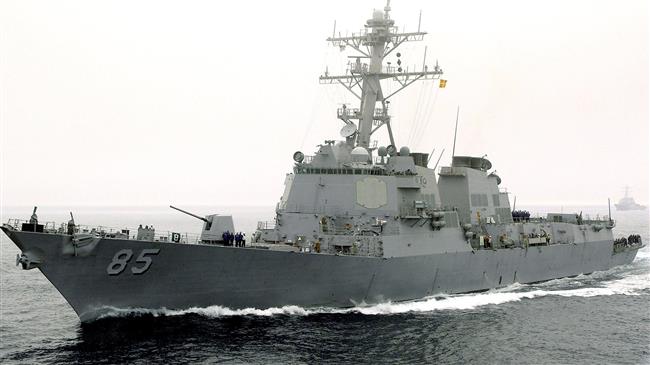


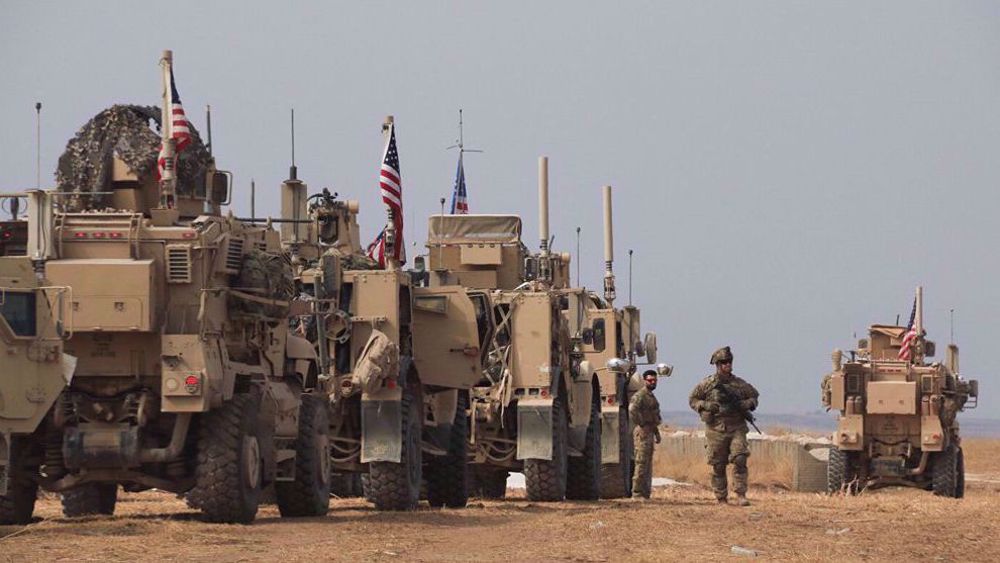
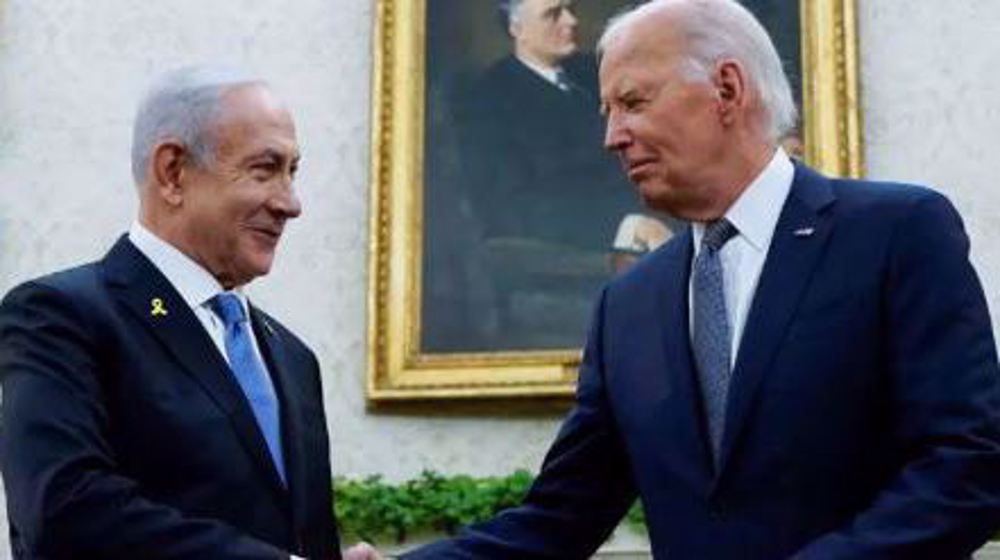



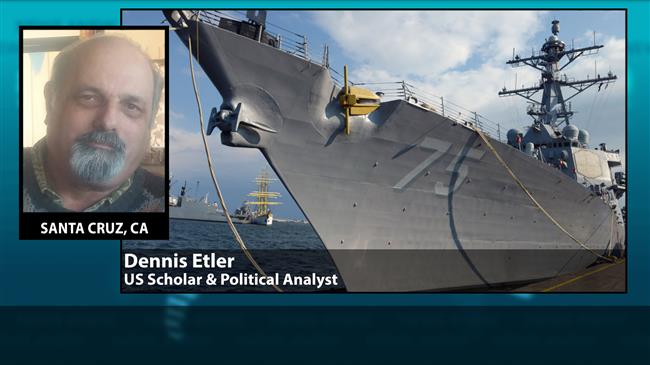
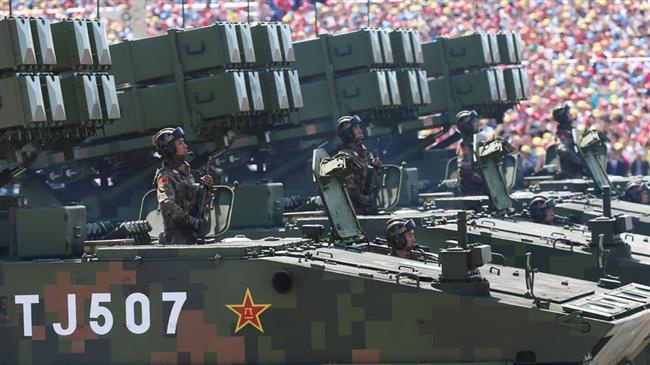

 This makes it easy to access the Press TV website
This makes it easy to access the Press TV website